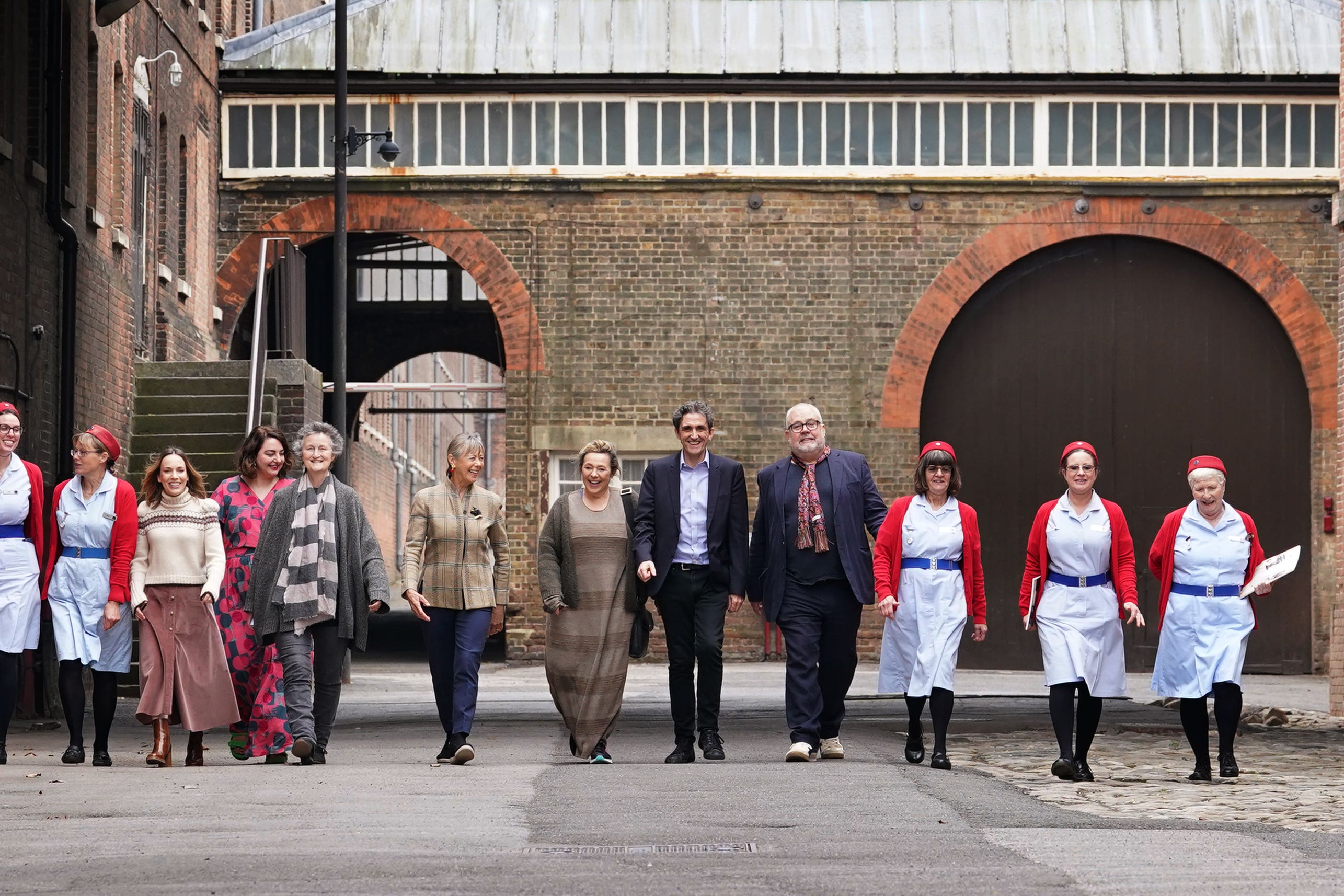Call The Midwife ‘should come with a health warning’
Researchers analysed 87 births shown in 48 episodes of BBC’s Call The Midwife, This Is Going To Hurt and Channel 4’s One Born Every Minute.

Your support helps us to tell the story
From reproductive rights to climate change to Big Tech, The Independent is on the ground when the story is developing. Whether it's investigating the financials of Elon Musk's pro-Trump PAC or producing our latest documentary, 'The A Word', which shines a light on the American women fighting for reproductive rights, we know how important it is to parse out the facts from the messaging.
At such a critical moment in US history, we need reporters on the ground. Your donation allows us to keep sending journalists to speak to both sides of the story.
The Independent is trusted by Americans across the entire political spectrum. And unlike many other quality news outlets, we choose not to lock Americans out of our reporting and analysis with paywalls. We believe quality journalism should be available to everyone, paid for by those who can afford it.
Your support makes all the difference.Popular TV show Call the Midwife needs a health warning, academics have said.
Experts from King’s College London and the University of Liverpool said television programmes showing “inaccurate birthing practices” should require safety recommendations for viewers to avoid misinterpretations by the public.
Researchers analysed 87 births shown in 48 episodes of BBC’s Call The Midwife, This Is Going To Hurt and Channel 4’s One Born Every Minute.
They compared how the depiction of these births compared to modern guidelines from the National Institute for Health and Care Excellence (Nice).
The births largely compared favourably to modern care guidance, the authors found.
We saw too early cord clamping in most televised births but no programme informed viewers about the safety aspects
But a third of the time depictions of midwives and doctors clamping the umbilical cord were shown inaccurately or dramatised, according to the paper which has been published in the journal JRSM Open.
Researchers said that without a safety warning to inform viewers otherwise, the general public and healthcare professionals could think the clamping practices they see are correct.
Nice guidance states that women should not have the umbilical the cord clamped earlier than one minute after the birth unless there is concern about cord integrity or the baby’s heartbeat.
But the academics found that in 21 instances clamping appeared to happen immediately or too early.
Susan Bewley, professor emeritus of obstetrics and women’s health at King’s College London, said: “Millions of viewers watch programmes like Call The Midwife every week to be entertained but the line between fact and fiction is blurred.
“We are impressed that UK television shows have accurately depicted some changes in childbirth over the last century, but on the other hand they have also provided the public with a picture of poor-quality care when it comes to clamping during childbirth.
“These inaccurate depictions could influence how people see real-world care.
“We saw too early cord clamping in most televised births but no programme informed viewers about the safety aspects.
“When showing outdated practices, broadcasters have a public health duty to inform viewers that this immediate medical intervention is no longer recommended. No broadcaster would show the sleeping positions associated with cot-death without comment.”
Andrew Weeks, professor of international maternal health at the University of Liverpool, added: “Health professionals know that midwives and doctors should not interrupt the flow of blood to the newborn baby nor separate the mother and baby without a pressing reason, and yet this is what is being shown on popular television programmes as common practice.
“Incorrect depictions like this, however routine, can lead to misinterpretations of correct practice by the public.
“This illustrates the need for safety recommendations when TV dramas show birthing practices and procedures that are outdated and inaccurate.”
A spokesperson for Call The Midwife said: “Call The Midwife is a drama, not a documentary, and is set half a century ago.
“It is highly accurate to the period it depicts, and shows how childbirth has changed radically over the years.”
The study was published as the charity Lullaby Trust, which raises awareness of sudden infant death syndrome (SIDS), highlighted infection prevention among newborns.
It said that parents should avoid letting other people kiss their baby and should always ask people to wash their hands before touching a newborn.
“Even infections that cause mild symptoms such as a common cold in adults and older children can be life-threatening for babies,” said charity chief executive Jenny Ward.